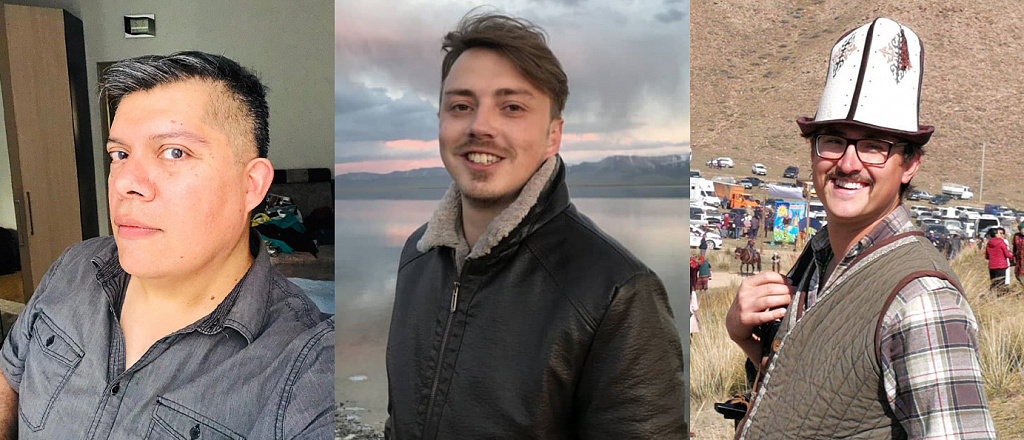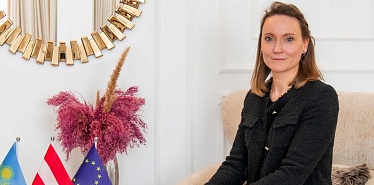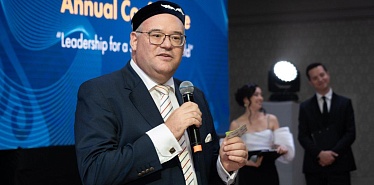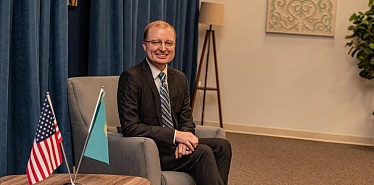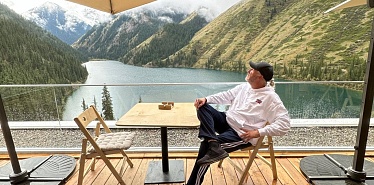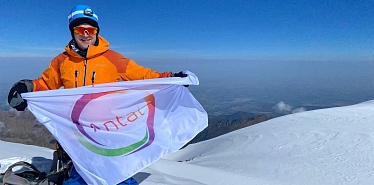Alex Johnson, Karakol, tourism Expert in Kyrgyzstan, @AJ_Johnson76
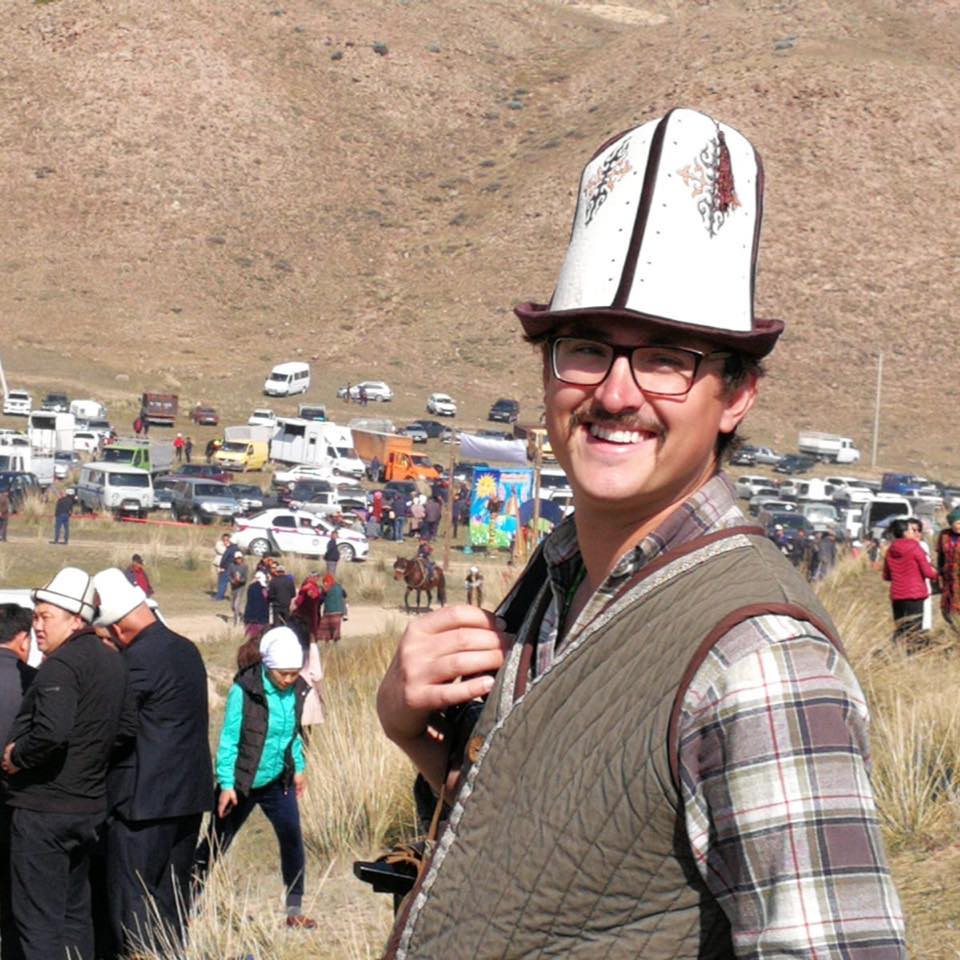
I am originally from Madison, Wisconsin, United States and I made Kyrgyzstan my second home back in 2014. I first came to Kyrgyzstan as a Sustainable Community Development Volunteer in the Peace Corps and never left. In my first two years, I was lucky to serve in the tourist town of Karakol, Kyrgyzstan on the cozy side of Issyk Kul Lake. Then I moved to the capital Bishkek, Kyrgyzstan, and opened the first-ever Camper Van Rental Business in Central Asia renting out 4x4 UAZ Buhankas to travelers. I am happy to share with you a bit of my lifestyle here in the high mountains of Kyrgyzstan.
About first impression
When I first arrived in Kyrgyzstan, my first impression was that the local population was extremely friendly and I loved the mix of cozy Soviet-style log cabin houses and vintage cars all across the countryside. I knew that I would spend more than just one or two years in Kyrgyzstan from the start and I knew I wanted more from my lifestyle in Kyrgyzstan.
About difficulties
At first, it was difficult for me to learn the Kyrgyz language, but with the help of my lovely adopted Kyrgyz Mom, Rich Rahat life became much richer. Currently, I speak Kyrgyz almost fluently and my Russian has improved a lot in the last six years. Most foreigners only learn Russian and I think that is a bit of a shame because the Kyrgyz language is so interesting and a great way to understand the lifestyle of the local population. Russian language is necessary for doing business and working with the local government officials but in the high mountains, you might struggle to communicate with the mountain communities.
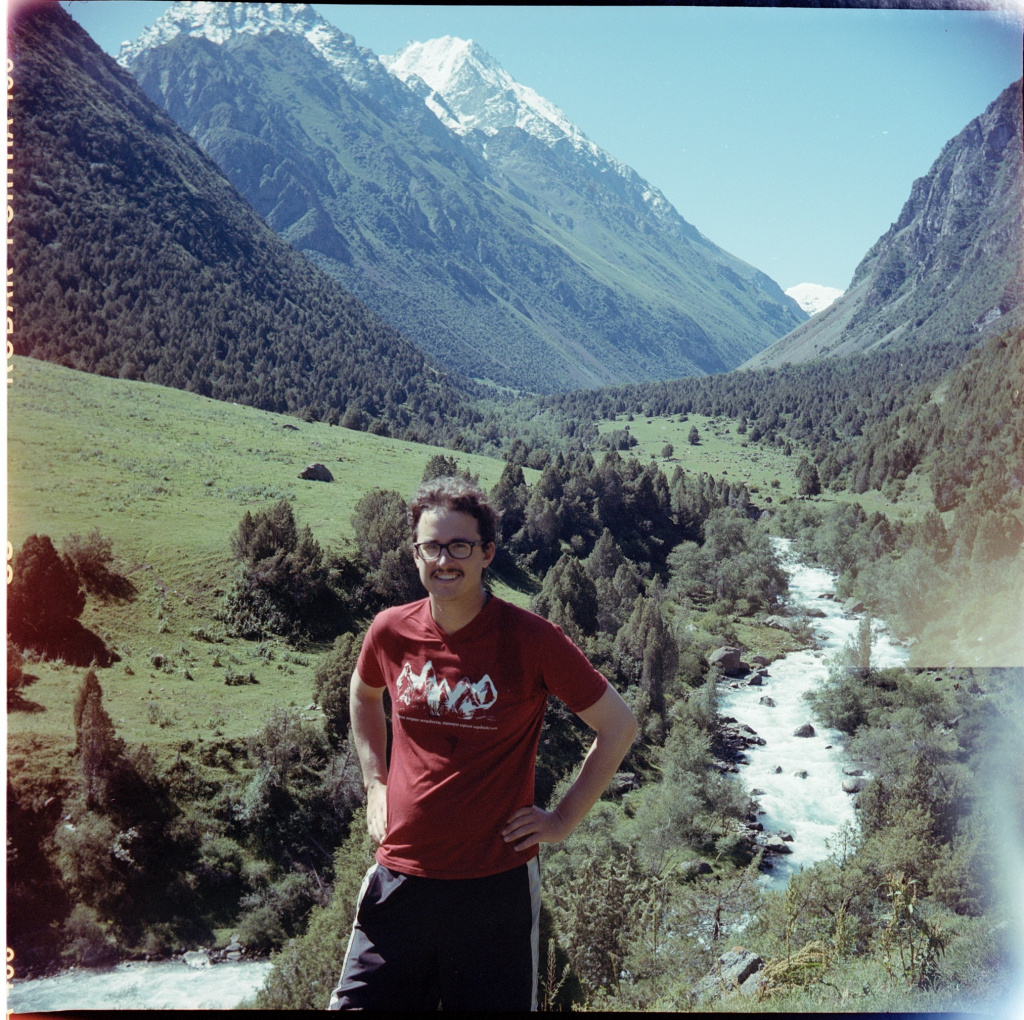
About differences
The lifestyle of living in Kyrgyzstan is quite different from in the states. Family is really important here in Kyrgyzstan and respecting your elders. Family gatherings are important as well, but sometimes they are quite overwhelming for me because of the large amount of food and dancing/sing that leads late into the night. In the states, life is quite fast passed and it is really important to keep moving forward in your “career” and in Kyrgyzstan you need to think of your family’s needs first.
About similarities
One thing that is quite similar between our two cultures is the pride in working from the land and living from the land. Where I am from in the states it is a badge of honor to live off of the land and the same goes here in Kyrgyzstan. Everyone is making their own fruit jam, caning salads for the winter months, and all-around self-relent mindset. The toughness of the local population is really admirable and it’s something that I wish to follow thought-out my life.
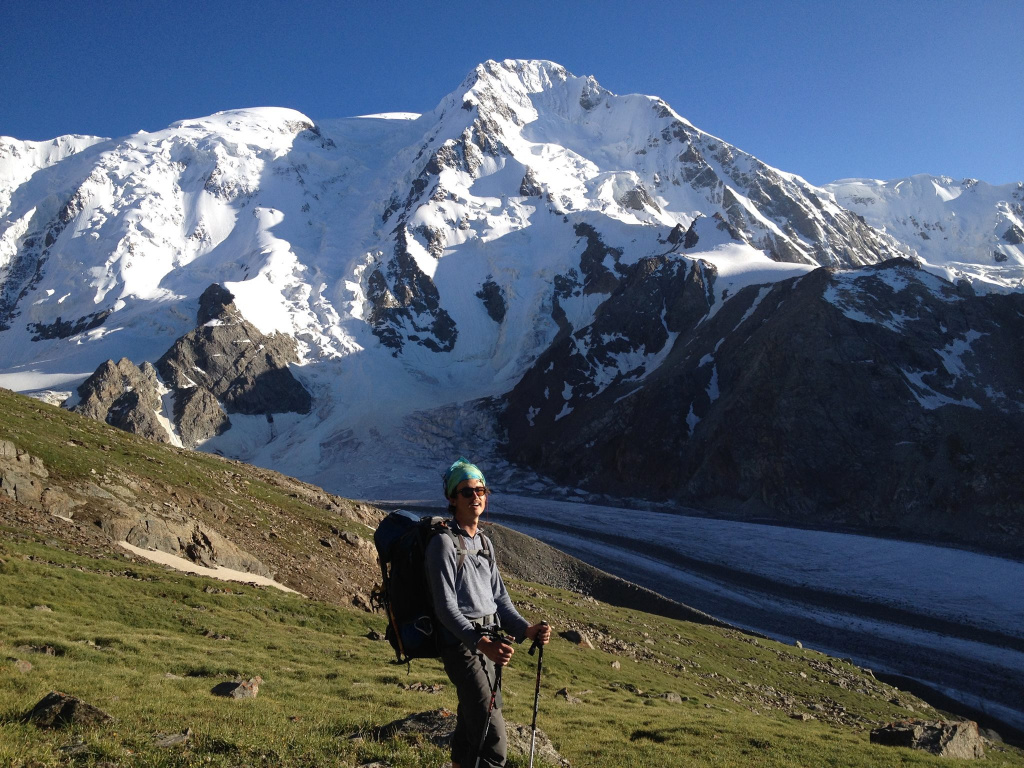
What I like here
One thing that makes Kyrgyzstan really special to me is the contrasting nature in such a small country. There are three 7,000 m peaks in Kyrgyzstan (Lenin Peak, Khan Tengri Peak, and Victory Peak). It is really a mix of the high mountains of Nepal and the high alpine plateau of Mongolia. Back in my home state of Wisconsin, it is more similar to the dense forest of Siberia in Russia with rolling hills and marshy swamps. This is also beautiful, but there are not many contrasts within my state comparted to the contrasts within Kyrgyzstan.
Interesting story
My most recent interesting story is being stuck in the small Kyrgyz village south of Osh city called Sopu-Korgon during the COVID 19 lockdown. My wife and I were stuck in this Silk Road village for around 40 days and it was great to get to know the lifestyle of the southern Kyrgyz and pick up a bit of their local accent as well. You can find out more by reading my article (Link to my Linked in page)
Tom Clifton, Bishkek, English teacher
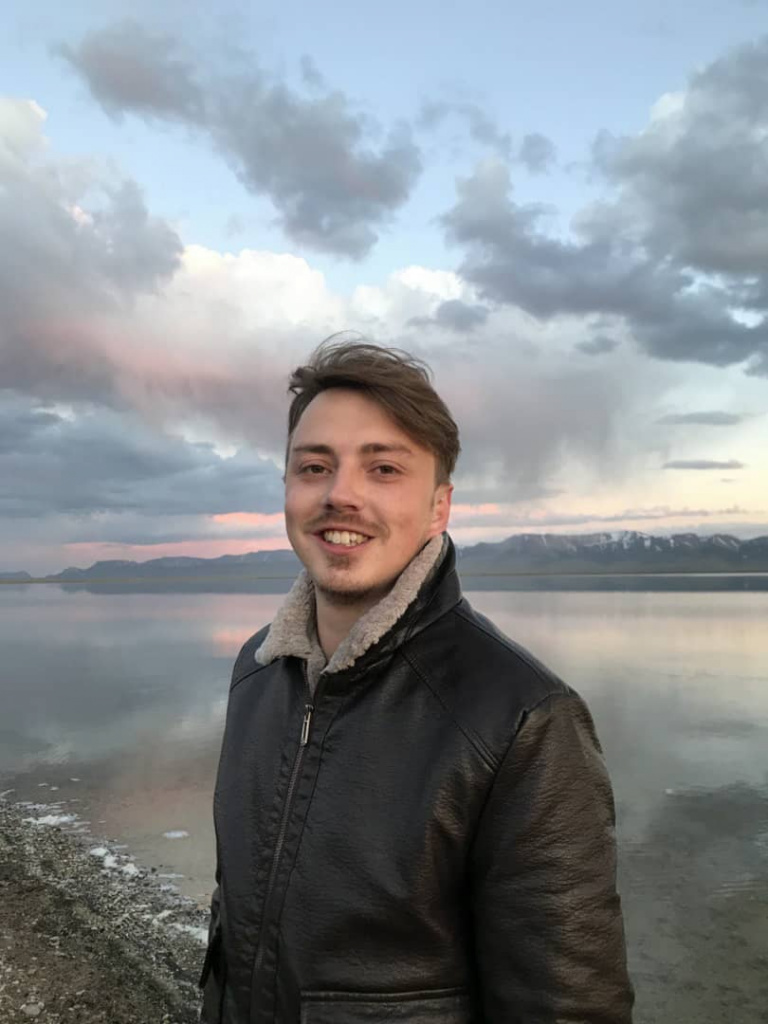
I am from a small town in Bedfordshire, not far from London in the UK. I spent most of my adolescence and early adult life in the capital, studying and working in Central London. I previously worked in marketing and sales in the UK, but moved into teaching around three years ago. I am currently an English teacher at an international school in Bishkek, Kyrgyzstan.
I have lived in Kyrgyzstan- apart from one sojourn abroad- for nearly three years, but I first came to Kyrgyzstan around four years ago on a one-way ticket as a tourist. Although it was the first stop on my travels, I immediately fell in love with the republic and its enticing mix of old and new, east and west, urban and rural. I bought old 1970 VAZ Zhiguli and drove it around the country, before it finally died just South of the Tajik border. Although the car perished, my love for the country remained, and I came back to work here in 2018.
About first impression
My very first impression was quite drastic. After a long overnight flight, I got off a mashrutka in the pouring rain outside of Osh Bazaar. I had to haul my heavy backpack through throngs of people and trudge up muddy, potholed backstreets in thick October smog to my hostel. It was only after the sun came out the next day that the city livened up; the frost pulled away, and the sky cleared to reveal the sharktooth-like mountains that loom over the city. I still also remember the first time moving towards to Karakol in the twilight, with the tall poplar trees turning orange, the cows being rustled back into their barns, and the cool air drifting off the mountains.
About difficulties
The same difficulties abound now as they did when I first came, and the main one would be communication. My Russian is limited, as I have been notoriously lazy with getting going with intensive learning, and my Kyrgyz is only useful when it comes to nouns, and joking with taxi drivers. This means that the bureaucratic red tape that comes with visas and doctors' appointments can be tricky, but I still seem to get through it okay.
About differences
There are big differences between cultures in the UK to culture in Kyrgyzstan. The first that springs to mind is culinary. The Kyrgyz love their meat, and vegetarian options on menus have not taken off in the same way as they have in the west. Being a vegetarian in the mountains must be deeply frustrating when you only have the option of meat-filled soup or meat-filled dumplings, but that has to be expected from a country with little arable land and a nomadic history. Luckily, for me, I am a meat-lover, so I am overjoyed when I get a portion of Kuurdak, which is 80% lamb.
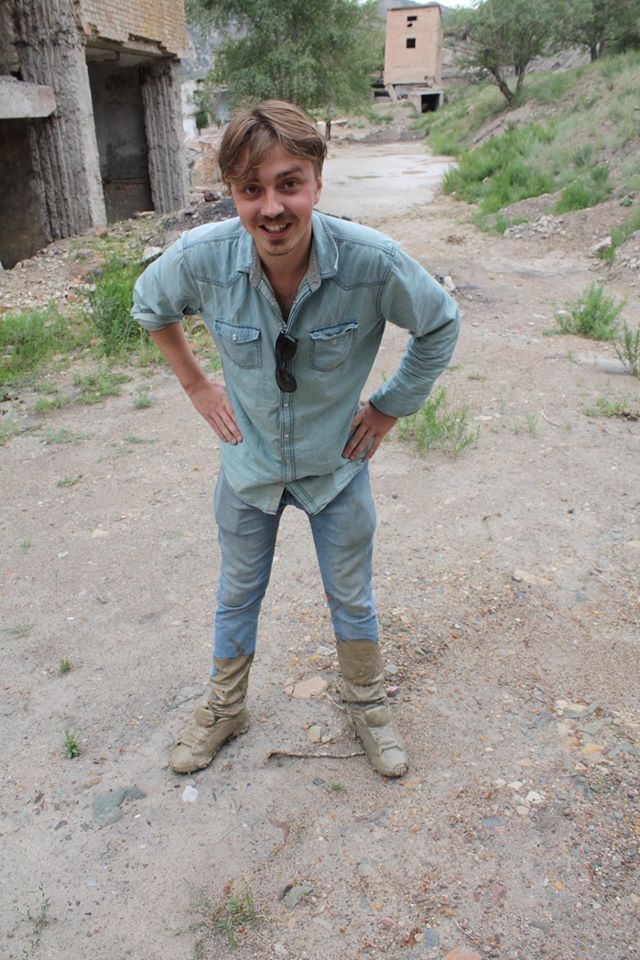
About differences
Another noticeable difference is the attitude taken towards things that do not work. There is an adage that "If it's not broken, don't fix it." I think sometimes Kyrgyzstan stretches the proverb to "If it's broken, you still don't need to fix it." I cannot count the amount of times taxis or vans have broken down on empty stretches of road, with me inside, due to a simple mechanical failure that could have been rectified with a quick look under the bonnet of the car before departure. On the other hand, in the case of hotels, being administered electric shocks by plug sockets or light switches because of a not-too careful repair. Sometimes, of course, this does have its upsides. In the UK, we have to put our cars through a series of tests and taxes to even declare it road-worthy. Here a simple homemade solution could allow you to drive on into the sunset.
About similarities
Some similarities are noticeable. Tea culture is probably the most noticeable. When I talk to my students, or local friends, they all remark on the stereotype that British people love cups of tea, and have a mug in their hand nearly all day long. I can only say in response that I am sure Kyrgyz people, and indeed most Central Asians, drink tea more than we do, but of course they usually skip the addition of milk.
About people
Kyrgyz people are overall very hospitable. As I have spent time in Africa and in the Middle-East, where hospitality reigns supreme, I can certainly say that most Kyrgyz people are attentive to your needs, inquisitive, and will do as much to make you as comfortable as possible. There are of course some bad eggs that can see you as an outsider, or see immigrants like myself as harmful to the traditions of society, but that is not very different from nationalism in any country. I like the aspect of pride that Kyrgyz people have towards their own nuanced history, and the traditions that come with it.
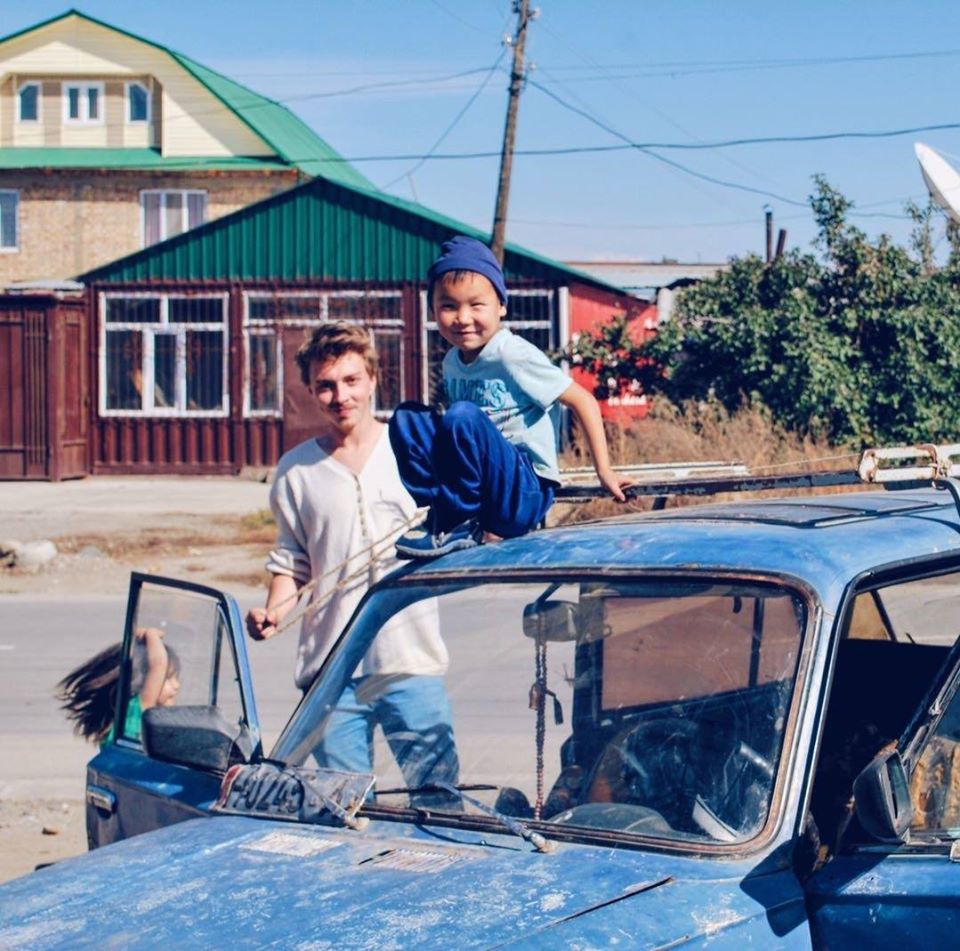
What I like there
The vast emptiness in Kyrgyzstan is something that we don not have in the UK. Whilst a Scottish person or a Welsh person, or even a Cornish person might pipe up and declare that the UK does have mountainous areas with little to no people, I hope that they can at least agree that the UK does not have remoteness and emptiness on the same scale as the Kyrgyz Republic. Take a 10 km drive outside of the city and you are faced with immense mountains four times the size of those anywhere in the UK, and drive down to the Tian Shan and you are almost doubling that size again. Half of the country feels undocumented at times, and by taking small roads off to distant villages and pastures, you can really feel like you are the first to step into this world.
Interesting story
I have spent enough time here to make a number of mistakes. In 2016, I was snowed in at the Kyrgyz-Tajik border town of Sary Tash for around four days, surviving off a healthy dose of eggs and beer while watching my money slowly dwindle. Some friends and I decided to try to walk to Tajikistan in around -20, which led to most of us being hypothermic and feverish.
On separate occasions, the brakes have failed or the tires have exploded on my car on mountain roads, and we have spent the next minutes either screaming or frantically trying to get them in working order again.
But possibly the best memories I have made here are the ones when walking around small villages at night listening to the cicadas from the crop fields, or camping out under swathes of stars at high-altitude, or exploring abandoned uranium mines overlooking Lake Issyk-Kul. I could go on for hours about the strange mix of attractions and places this country holds.
Rafael Vargas-Suarez, Bishkek, contemporary artist, @vsuniversal
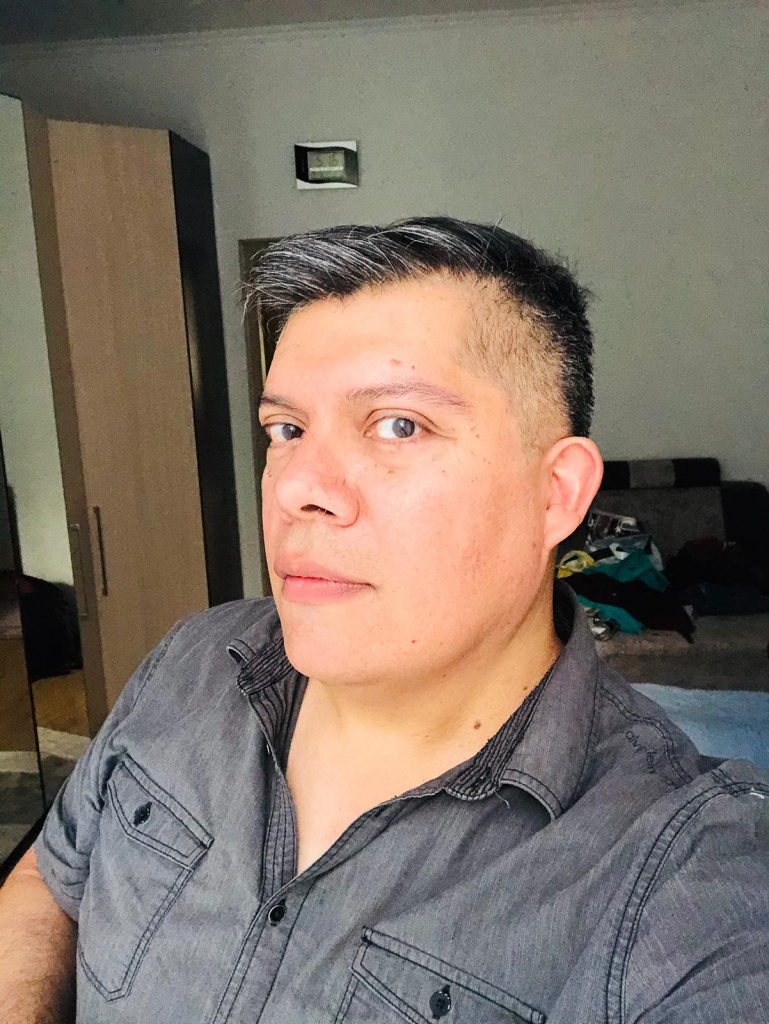
I sign all my artworks as “Vargas-Suarez Universal”. I was born in Mexico City, but then raised in Houston, Texas. After my university studies I moved to New York City where I have been based for 23 years. I am a contemporary artist. My website is vargassuarezuniversal.com.
I live part time in Kyrgyzstan. Anywhere from several months up to seven eight months. I originally came here by way of being commissioned to create a permanent artwork for the new American University of Central Asia campus. The NYC architect, Henry Myerberg and Kyrgyz artist/curator, Aida Sulova we are responsible for that amazing experience. The project took almost two years and after I finished I decided that I like working here.
About first impression
My first impressions were very much about the natural beauty and the vast differences with everything western and especially everything I had experienced in the US. I had already traveled throughout Russia before, from St. Petersburg to Lake Baikal and parts of Siberia, so it was slightly familiar, but vastly different that anything I really knew before.
About difficulties
My main difficulty is the language barrier. I still speak very little Russian. I have never taken classes, since I could never afford the time. And I know a few necessary words and phrases in Kyrgyz. But as opposed to many foreigners, I really try. I respect all languages. Otherwise, I find it fairly simple to learn how to live here. I have been lucky I have met many really good people to hire and work with. Most people accept me here almost like family.
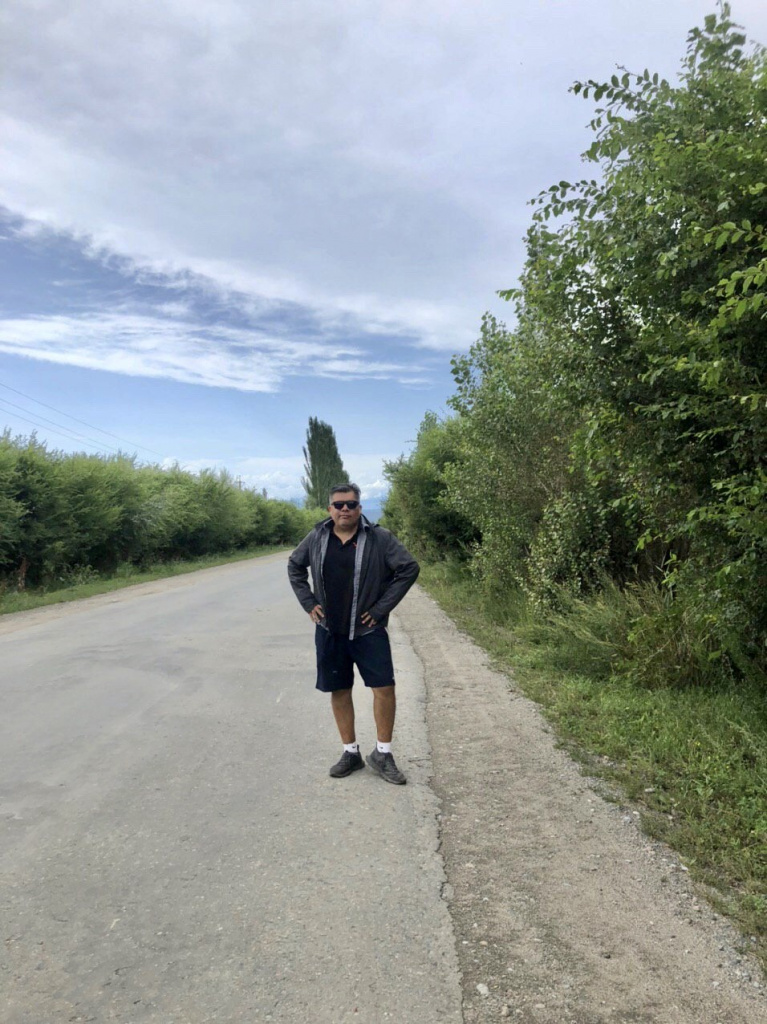
About differences
So many differences. I can sum it all up by saying that there is a lack of sense of ownership. People just do not take care of their own things. Perhaps during Soviet times since the state took care of everything, that still resonates.
About similarities
Honestly very few. With young people, there are a few such as being tech savvy, many hip-hop and hipster styles here. The only thing that bothers me is that many young people in Central Asia emulate African-Americans in fashion, music and culture yet I see a lot of racism at play. I ask myself if they truly know enough history to understand the Black Lives Matter movement or if they have actually ever met a person of color, and if they would accept them in their home as their guest. Emulating a culture you discriminate is something I notice here.
About people
Some of the lifestyle here reminds me of super conservative Catholic culture in Latin America. Meaning, people have very little freedoms and privacy at home with their parents. One great thing is to see how much people enjoy the outdoors. Because of the long winters. I think people love summers here more than back home.
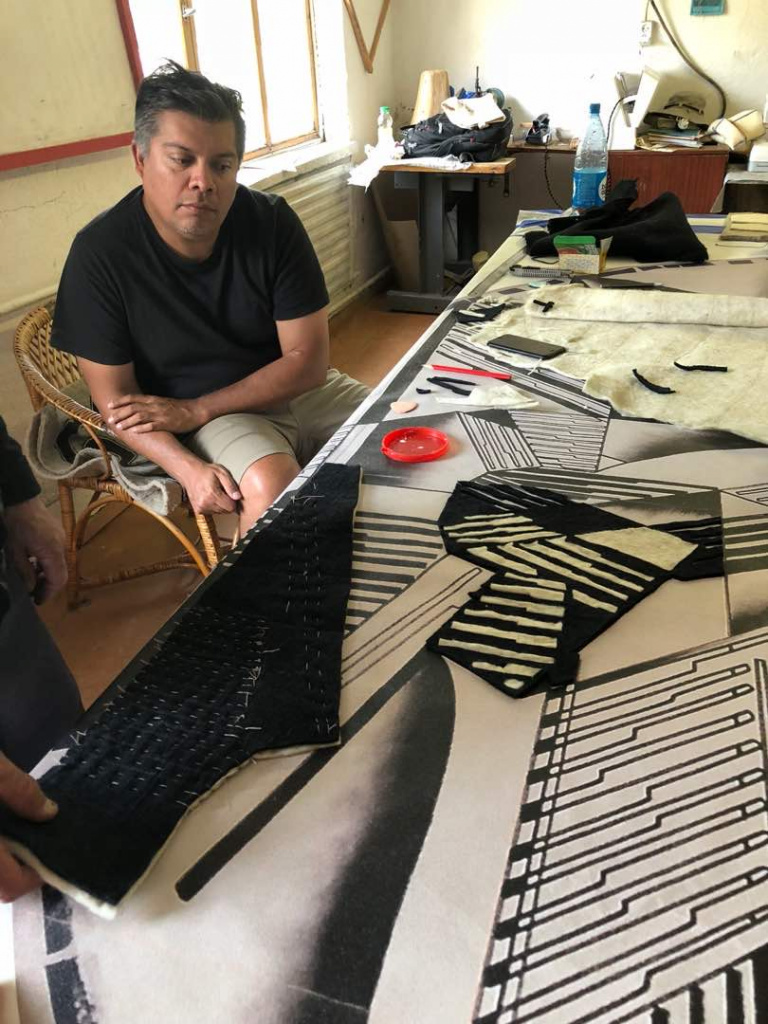
What I like there
I like the quality of the foods. It is all natural and healthier. I like the proximity to nature and the central location of the country for travel to other countries such as India, UAE, South Korea, and many other short flights as compared to flying to these places from the US. I like the down to earth attitude of most Kyrgyz people.
Interesting story
From time to time people ask me if I am CIA. I tell them that I am an artist and then they are really puzzled. Then they tell me it is the perfect cover up to be a spy. Kazakh border guards have also told me that I am “mucho macho muchacho!” Which from my point of view is a major insult since I detest macho/misogynist culture, but it is interesting to see how language and culture recontextualizes meaning. I get asked many silly questions and I just take them with a grain of salt.







